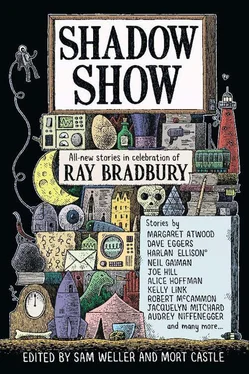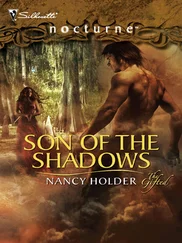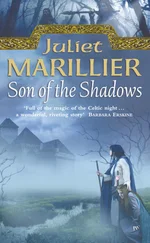Masonry isn’t a secret society, but it does have an initiatory path in which private things, over the years, and as earned by years of service, are revealed. And by this time I myself had advanced far enough that I felt I could ask someone very high up about Max.
So I went privately to another old man—that is, if Max was indeed old—to a brother who was among only three in my state who’d been at the top of everything.
I must mention that this old man was a “normal old man”; he’d aged logically, my having seen pictures of him at various points of his advancement, which incidentally had been far higher than Max’s. So I felt I might trust his judgment.
And this brother, after I’d made my appeal, looked at me a long time before answering. But in the end, probably feeling he had to adhere to the Masonic belief that one only needs to ask to be given, he revealed, as I sat in shock—but also deep and marvelous gratification—the truth about Max.
“They’re set down here, from time to time, from—somewhere,” he simply said. “The Tilers, the ones who, even despite all my gold badges, are the most important, who are sent to guard us and everything we do. They seem to be over forty, at least, when they first come to us. But the crucial thing about them, as you’ve been smart enough to guess, is that they’re somehow ageless. Nor indeed do we really know who they are, or much of what their worldly position, in other respects, may be.”
He paused, then concluded. “I must modestly submit something to you,” he said with a sweet, mystical smile. “Though some people may say we are, we’re not a religion. But can’t there still be something like a Masonic saint?”
And so I believe it was, and is. That’s because I attended Max’s funeral the other day, along with practically every other Mason in the state.
So he was apparently human—as to age and death—after all. But the curious and wonderful thing about it was that even though Max’s casket was open, he didn’t seem to be there, and perhaps never had been. I had a vision of him as just having always been where he’d come from, and where he now, fully, was again—a Tiler, for eternity.
So was Max a saint—or even an angel, a guardian one? After all, the wise old brother to whom I’d gone for an answer had said, “set down, from somewhere,” and wasn’t that the province of angels, not saints? I thought of the cherubim who guard the Ark of the Covenant in a higher Masonic degree, and I wondered.
But one thing more. At the funeral, on the edge of the crowd, was a brother I’d never noticed before. He was very unlike Max: as if to keep us on our toes as to celestial expectations, he was short and fat.
“That’s the guy who’s going to tile the lodges now,” someone said quietly, nudging me, after noticing my glance. “Just joined. Don’t know anything about him.”
But something I’m wondering.
“How old is he, do you think?”
About “Max”
When I was in high school in the early 1960s, I spent my summer vacations working at a grocery store, dating girls, and devouring science fiction. I’d go to the local library and take out armfuls of those old book-club editions, reading through the entire works to date of practically everybody in the field. And of course, a prime one of these was Ray Bradbury.
But amid my later-life pursuits, I forgot about all this—until I myself entered the science-fiction/fantasy/horror field in the early 1980s, as a publisher and a writer. Indeed, I then published Bradbury himself, and I appeared with a short story in an anthology in tribute to him.
But even given this, I don’t think I realized the full extent of my debt to Ray Bradbury until recently, when Mort Castle and Sam Weller asked me for a story for this volume. They wanted “Bradburyesque” or “Bradbury-informed”—and as I happened, then, to look over my many published stories, I saw how many of them already were .
So it was an easy and a happy task for me to write the story you’ve just read—and I hope you’ll have seen in it the inestimable gift I received, in those long-ago summers, from Ray. And if I were asked to put it in just a few words, I’d say, a sense of wonder .
—John Maclay
TWO OF A KIND
Jacquelyn Mitchard
It does not happen so much, not anymore, but when it does, I grab Joanie.
I grab Joanie, my wife, like a little boy grabs his mama when he has a nightmare. And that’s not enough.
Even when my hand closes around her thigh, thick from all the years of babies and bending to scrub but warm and alive under her flannel pajama pants, I still let myself moan out loud. I hate to do it. A grown man. A grown man and a grandfather, at that. But I make the noise on purpose. I want Joanie to wake up, just so she can say something to me, say anything to me. It’s like the dream is a web that fell on me in the dark, so big you wonder what made it, gumming up your mouth and your nose so that even being awake and knowing you’re in your bed with your wife near the West Side of Chicago, with your daughter who got herself into trouble and the sweet little boy with corkscrew curls that come of it asleep down the hall, it still keeps rising and you want to claw your skin before it smothers you. The dream is stronger than real, like a spider’s web is stronger than wire—you know that? Silk is stronger than wire.
This is the dream.
I see my hand drop a hand of cards; then Jackie drops his cards, too. The knife snaps open in his hand, and it starts to fall but then rights itself like a creature, its twin blades a mouth that starts to snap like the blades are swimming, pulling theirself through the air toward me. They want me. That knife, it wants me. It has all my life. I see the blood burst from my palm before I feel the hot nip of the cut.
“Joanie!” I cry.
“Go to sleep, Jan,” she says, using the J sound, not the Y , like Irish do.
“Joanie, are we married?”
“Jan, these thousand years,” she tells me, half asleep. She takes my hand off her leg and lays it on her breast, not as if to start us making love but the way a mother would. There now, feel my heartbeat . Joanie’s hand is raw and red from the housecleaning, but dainty as a lady’s, shaped the way all them Finnian girls’ was, as if they was all linen and lace instead of shanty Irish. It’s shaped like the way her sister Nora’s small white hand was, when Nora and us was young and Joanie just a kid. Joanie’s hand holds tight to my finger. She can’t hold my hand, it’s so big-knuckled from all the years as a plumber, with the rod and the shovel.
“Where is Nora?” I ask my wife.
“Asleep in her cell,” Joanie answers with a sigh, because she’s used to this. We’ve been married, like she says, since she was just a teenager and I a man of twenty-three. “With the painting of the blessed Benedict I sent her at her birthday over her head, sleeping and never moving, as if she left her body, sleeping like dead, like she ever did, even as a child…”
“Are you sure?” I ask Joanie, because I’m awake now and I want her awake. “I had a dream. My leg hurts like hell. Is there a storm coming?” My white T-shirt is drying by then, freezing me. I need an excuse at this point. I start dragging the quilt up that I’ve kicked onto the floor.
It’s always the same.
“I know,” Joanie says. “It’s only a dream, Jan. Be still now and sleep. You’ll wake the baby.”
I don’t think Joanie ever wakes up, no more than she did to nurse the girls. She would just roll to her side then, and they would fall asleep between us—first Marie, for my mother, and then Katherine, just ten months apart, and after Katherine, a few years later, Eleanor, and then the little girl we called Jacqueline for… for Jackie, I suppose, as a gift to me, though we never said as much. When we thought that all that was done, and stopped bothering to take care with lovemaking, along comes our Polly. I was crowding fifty at that time, though Joanie’s six years younger. We were happy enough to have a child in the house again. We didn’t count on having three kids at home. But that’s how it went. Polly was just ten when Eleanor, a grown woman, came home alone and pregnant. Eleanor, named for Joanie’s sister Nora, wanted to call the baby boy Kwaze, after his father, who was a good enough fellow but foolish. His name is a good name in the African language. It means “Sunday.” We told Eleanor that we thought he’d grow up easier, her being the only parent, with an ordinary name. Eleanor gave him the name of Kevin instead, and our last name, Nickolai. We wished it hadn’t been our Eleanor, so good in school, a junior in college, hoping to be a doctor. Still, we were happy. Joanie is a happy woman, with a sunny heart. A heart with no shadows.
Читать дальше



![Lord Weller - Ритера или опасная любовь [СИ]](/books/421202/lord-weller-ritera-ili-opasnaya-lyubov-si-thumb.webp)








